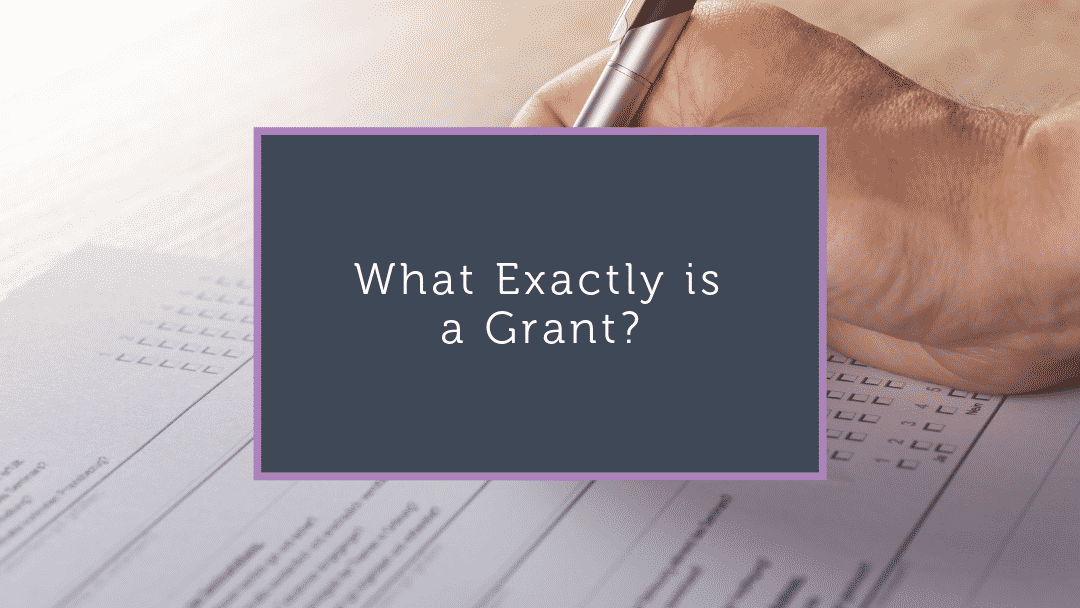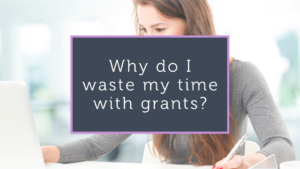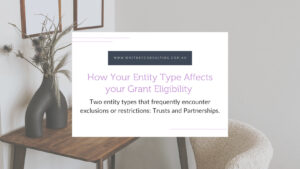Grant writing can be a confusing and daunting experience. It is common to be enthusiastic about all the funding options available for your organisation, only to be quickly deterred by the complex processes, new terminology, and red tape involved in getting a grant.
So What Exactly Is A Grant?
Grants are funds given out by private, public and not-for-profit organisations for a range of purposes. These organisations are often referred to as “funding body’s”.
All funding body’s provide the money to accomplish their objectives, however grants are not “free money”. They are payments that do not have to be repaid, provided they are utilised for a specific purpose as outlined in your application. Grants are usually highly competitive and require a particular skill to complete effectively. They will always have a specific focus or theme such as youth engagement, development of the arts and even business improvement and scientific research.
Grants are always for discrete, stand-alone projects with a beginning, end and clear outcomes from the project.
They are not for ongoing running costs of an organisation, such as permanent staff costs, rent and utilities simply for the organisation to do its usual work.
You can use grant funding for these costs but only if they relate ONLY to the particular project you are doing. Grants are also not retrospective, which means that you cannot get grant funds to reimburse you for a project already completed or work already started.
Choosing to apply to a funding body requires you to do your research and assess whether your project matches the funding body’s criteria and focus areas to be eligible. It is incredibly important that before you start putting together any type of grant application, you need to ensure you have a long-term grant-seeking strategy in place for your projects. An easy way to do this is to think of a grant funder as a potential business partner for your organisation, ensure you’re ready to demonstrate why your organisation is the best placed to achieve the outcomes they desire.
Read the grant application and guidelines thoroughly, it should be outlined clearly in these documents what it is the funding body is looking for and what their area of focus is
Grant applications are usually completed formally and can range from quite simple in nature to the other extreme of quite complex. This is usually dependent on the amount of funds you are seeking and the organisation providing the funds e.g. Federal Government applications are more comprehensive than one for a community bank. Some applications will need supporting documents such as a Risk Management or Project Management Plan to be attached and some may require a certain amount of financial contribution from your organisation.
Grants can be open all year round, while some will only be available for set periods through the financial year, also known as “rounds”. Occasionally one-off grants will be available throughout the year.
A requirement of many funding body’s is that a grant acquittal must be completed at the end of the project. This means as a recipient of funding you will need to account for how you spent the funds for your project. This can be a very simple process of filling out a form or, for larger amounts of funding, you may require extensive reports and audited financials. Knowing up front what is involved in acquitting your grant helps you to collect the information you need throughout your project, rather than having to stress at the end.
If you require further information, or have questions relating to Grant Writing please get in touch with Whitney Consulting, we are only too happy to help you on your grant application journey.






